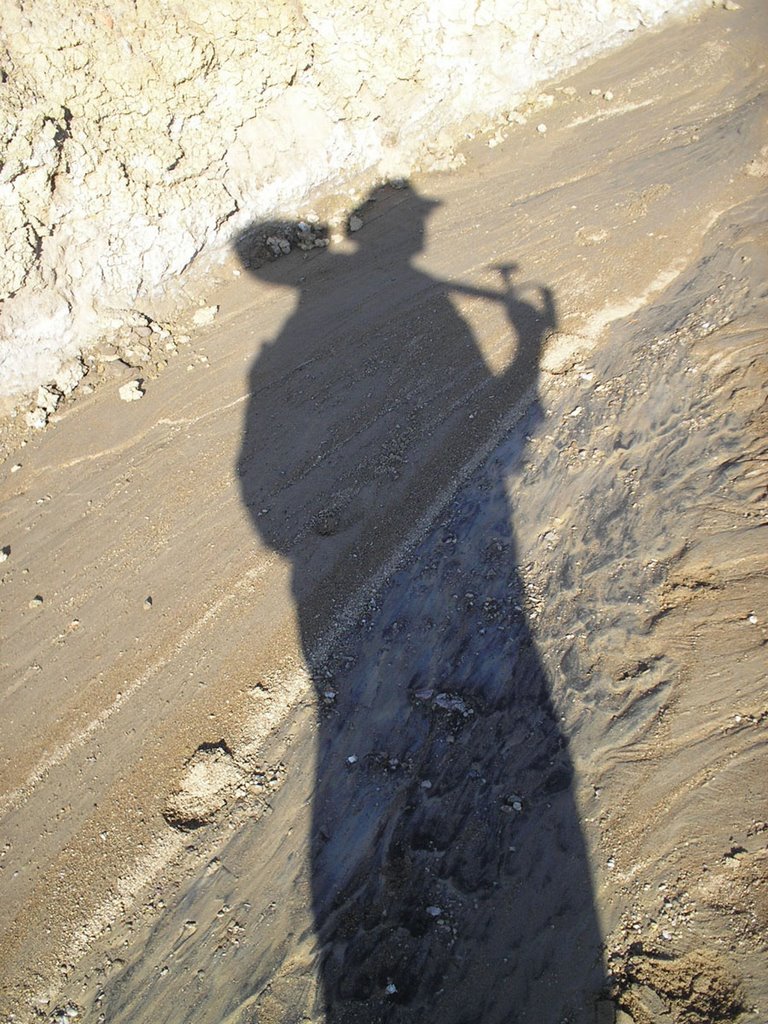Blundering toward productivity, Part 2: is there a better way to have good ideas?
In Part 1 I discussed the fact that, in my experience at least, good ideas almost always arise from undirected conversations with friends and colleagues (e.g., goofing off). I ended the post by wondering whether this process can be circumvented or accelerated. This post is about the first of those alternatives: is there another way to have good ideas other than gabbing with informed friends?
I doubt it. Mike and I have both noticed that on museum research visits we get a lot more done if we're working with someone else than if we're working alone. And usually that is not because we are sharing the load, like one person taking measurements and the other writing them down. It's because we just notice more and ask more questions.
The corollary is make sure you work with the right person. A good collaborator is curious, open-minded, and not afraid to look stupid. When I'm really in the zone on a collaborative project, I say all kinds of stupid things, and frequently have to be reminded of the obvious. And I am lenient when my collaborators say dumb things, because there is more than one kind of dumb statement. We're so used to dumb statements that indicate that someone is not thinking at all that it is hard to realize that sometimes dumb statements mean that someone is thinking very hard. So hard that they can't be bothered to remember little details like gravity or the fact that necks must necessarily have a head at one end and a body at the other.
Well, why not just guard your inner monologue and not let the stupid stuff out? Because that's what you do for the rest of your time, and because that filter that you set up to catch the stupid stuff might also catch the really brilliant stuff. At the very least, it will slow down the flow. There is some necessary humility here. Not just the humility to not be afraid to look stupid, but also the humility to realize that you are not going to get to all the good ideas yourself, and even your wrong or dumb ideas might jar something loose in your collaborator's head.
Hmm. I have read that you write reports when you have found answers that need sharing, and you write essays to find answers in the first place, and sometimes to questions you didn't know you were asking. I started this section thinking that I was just going to write glowingly about the value of batting ideas around with someone else. But I think I am coming to the view that openness, verging on stupidity, is not only necessary, but also the answer to the next question.
For another recent defense of stupidity as a crucial part of science, go here, and please note that the linked paper is free.
I doubt it. Mike and I have both noticed that on museum research visits we get a lot more done if we're working with someone else than if we're working alone. And usually that is not because we are sharing the load, like one person taking measurements and the other writing them down. It's because we just notice more and ask more questions.
The corollary is make sure you work with the right person. A good collaborator is curious, open-minded, and not afraid to look stupid. When I'm really in the zone on a collaborative project, I say all kinds of stupid things, and frequently have to be reminded of the obvious. And I am lenient when my collaborators say dumb things, because there is more than one kind of dumb statement. We're so used to dumb statements that indicate that someone is not thinking at all that it is hard to realize that sometimes dumb statements mean that someone is thinking very hard. So hard that they can't be bothered to remember little details like gravity or the fact that necks must necessarily have a head at one end and a body at the other.
Well, why not just guard your inner monologue and not let the stupid stuff out? Because that's what you do for the rest of your time, and because that filter that you set up to catch the stupid stuff might also catch the really brilliant stuff. At the very least, it will slow down the flow. There is some necessary humility here. Not just the humility to not be afraid to look stupid, but also the humility to realize that you are not going to get to all the good ideas yourself, and even your wrong or dumb ideas might jar something loose in your collaborator's head.
Hmm. I have read that you write reports when you have found answers that need sharing, and you write essays to find answers in the first place, and sometimes to questions you didn't know you were asking. I started this section thinking that I was just going to write glowingly about the value of batting ideas around with someone else. But I think I am coming to the view that openness, verging on stupidity, is not only necessary, but also the answer to the next question.
For another recent defense of stupidity as a crucial part of science, go here, and please note that the linked paper is free.
Labels: Not Quite Science, Thinking About Thinking


0 Comments:
Post a Comment
<< Home